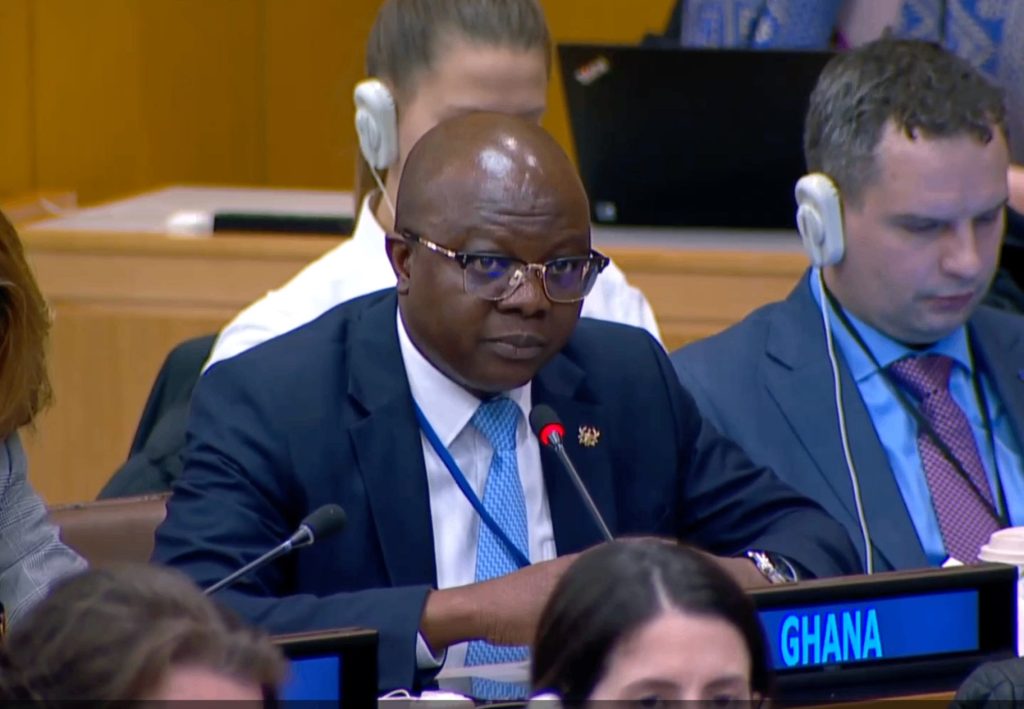Ambassador Nasr is intimately familiar with climate finance considerations having been a lead negotiator on finance for the African Group of Negotiators (AGN) since 2009, and an ongoing member of the Loss and Damage Transitional Committee as well as the UNFCCC’s Standing Committee on Finance (SCF).
Going into African Climate Week and the Summit, what are your hopes and expectations for the meeting, and what do you think the main climate finance priorities should be?
Most countries agree on the Paris Agreement’s goal for net-zero by 2050, and the goal of keeping 1.5oC in reach, but what is needed is finance for the implementation of Nationally Determined Contributions (NDCs). You can have the best strategies in place in developing countries, but it means very little if they lack the means to deliver it. In Sharm El-Sheikh we had a focus on implementation, what is happening on the ground, and what has been promised financially, and the extent to which it is being delivered. This year countries are also looking at what is needed in terms of renewable energy finance, what is needed to keep the world on track for net zero, what is needed for agriculture, industry and all the other sectors, and what developing countries need for NDC implementation, following from the findings of the SCF Report. In that report, it was found that developing countries need $5.6 trillion dollars to be delivered to implement their pledged contributions under the NDCs up until 2030. While there is a need for $5.6 trillion up to 2030, developed countries are still facing challenges to deliver on the pledge of $100 billion. The question is what are the components of what needs to be delivered and how to bring about the right framing for this: to keep 1.5 degree alive, to achieving carbon neutrality or delivering on renewable energy.
There are a number of proposals on the table to reform the global climate finance architecture. Which do you think are the most important from an African perspective?
In addition to the above, addressing the current challenges experienced with existing institutions remains fundamental. It has been observed and repeatedly said that developing countries continue to face a number of challenges in accessing climate finance from financial institutions. In particular, many countries looking for climate finance are getting it in the form of a loan. Many African countries are highly indebted, as are most developing countries. At some point policy makers will be forced to say we are not in a position to take on a loan because we are unable to pay it, especially with the high and increasing interest rates now in the US and in the EU.
These elements were brought forward in Sharm El-Sheikh by developing countries and it is reflected in the outcome, particularly in the three points around the reform of International Financial Institutions (IFIs). The first is increasing scale and additionality of resources. Instead of repackaging existing finance it needs to be new and additional climate finance. The second is accessibility to finance, we need a harmonised and facilitated access process. The third is that the instruments need to be more concessional, in the form of concessional loans and grants. This is the only way to fully deliver on the $5.6 trillion and ensure none, no country or continent is left behind.
Then there are the needs of Africa. The continent has received 2% of international investments in renewable energy, notwithstanding its resources. This is because of the perceived risks of investing in Africa. Secondly, African countries lack the resources to pay for renewable energy, which does not come cheaply. This is why there are 600 million Africans with no access to energy needing to be serviced, and countries have no or very limited renewable energy. If there is any renewable energy it is taking place only in a handful of countries such as Egypt, Morocco, South Africa and Kenya. My hope is that the Summit will focus on the costs associated with accessing renewable energy, to ensure that Africa receives its fair share. It’s not about the volume of available renewable energy resources but about addressing the cost of investment, and the perceived challenges in investing in African countries.
This cannot be overcome even if African countries offer to give everything for free, since rating agencies also rate African countries as high risk or medium risk because most African countries are highly indebted among other risks. This means the cost of investment coming in is very high which means that the cost of production and selling of renewable energy is very high relative to the capacity of populations to pay.
At COP27 there were significant and clear calls upon Multilateral Development Banks (MDBs) and IFIs to reform in particular ways. Do you think we will see more detail again this year on the kind of finance reforms that African countries are looking to see?
The incoming COP28 Presidency has a focus on energy this year, looking to enhance or triple renewable energy and energy efficiency. This also necessitates the principle that no one should be left behind and everyone gets their fair share. Currently much of the progress and investments in renewable energy is happing elsewhere, in the US, China and EU, and the rest of the world is lagging behind. If the goal is to increase renewable energy and energy efficiency, the other qualifier needs to be that everyone gets their fair share.
To achieve this, we need more concessional finance and to address risk. Developed countries and the sovereign funds within them, need to provide the necessary guarantees for investors to come to Africa. This means that investors looking to come to African countries to invest in renewable energy will not need to look to those countries for sovereign guarantees but rather will be obtaining guarantees from the sovereign funds or from their own countries. It is those guarantees that will bring down the cost of investment and in turn increase the appetite to invest in renewable energy in Africa.
A possible practical solution to be considered is the development of an African facility, such as an African renewable energy facility, similar to the existing African Risk Capacity (ARC) facility for loss and damage. It could be run by the AfDB, although it need not necessarily sit under it. Such a facility could have a long list of projects that are tested and that have assessments and are bankable on their own terms. Contributors would provide finance to the facility which would then in turn deliver the finance. It would be helpful to consider similar practical ideas when looking to enhance implementation.
You have been participating in the Loss and Damage Transitional Committee meetings during the course of this year and I’m aware of their report that came out in May looking at innovative sources of funding, such as alternative taxes and levies. These are relevant not just to loss and damage but the climate finance landscape more broadly. Do you have any thoughts on these?
A number of the current proposals have been put forward for many years but none of them have yet materialised for three critical reasons. To succeed they must have universality, meaning everyone must implement it. Secondly there needs to be a clear process for how it will be collected and what it will be applied to and, finally, is there needs to be clarity and agreement on who will benefit. Without these three components they are unlikely to succeed.
The interview was compiled from notes taken during an interview on 31 August 2023, which have been edited and condensed for clarity and ease of reading. We wish to sincerely thank Ambassador Nasr for taking the time to speak with us at African Climate Wire.






